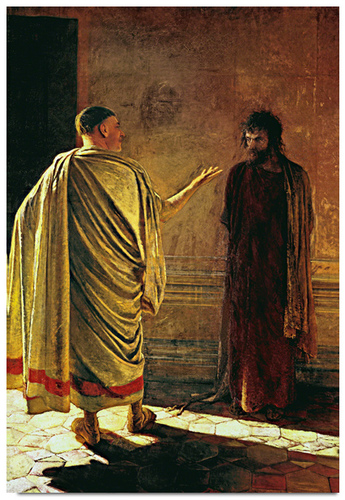Wednesday
To hear Trump lawyer Rudy Giuliani glibly proclaim “truth isn’t truth” while working for a man who has told over 4229 falsehoods during his presidency (this according to Washington Post’s fact checker) would feel like more of a desecration were we not worn down by the constant mendacity. To remind us what we stand to lose, I turn to William Cowper’s wonderful testimony to Truth in The Task.
First, however, here’s John Stoehr of The Editorial Board on the impact of the president’s non-stop lying:
Immanuel Kant said that “without truth, social intercourse and conversation become valueless,” and that “a lie always harms another; if not some particular man, then it harms mankind generally.” Michel Montaigne had this to say: “Our intercourse being carried on solely by means of the word, he who falsifies that is a traitor to society.”
These are moral claims, but the injury can be political. When it comes to a president’s role in a democratic republic, lying is about more than the different between truth and falsehood. It’s about the trust placed in him or her to govern in the people’s name. Without trust, there is no legitimacy. Without legitimacy, only tyranny remains.
Richard Painter, White House ethics lawyer under George W. Bush, recently took Giuliani to task for his words, even while noting that certain academics have held such views. I assume he’s referring to thinkers such as Michel Foucault, who argued that those in power determine the truth. I’m with Painter, however, rather than the contrarian Foucault (and the shyster lawyer Giuliani). Truth may at times be elusive, but by applying “method clear and argument exact” (to quote Cowper), we can come up with facts that most reasonable people will agree on. Our entire legal system is built on this premise.
Cowper represents Truth beautifully in The Task, a very long free-association poem that Jane Austen loved. (Marianne enthuses about Cowper in Sense and Sensibility.) In Book III the poet echoes Ecclesiastes in a passage that I wish those politicians blinded by power and wealth would listen to. It reminds us of our fragility, which makes a mockery of our vanity:
All flesh is grass, and all its glory fades
Like the fair flower disheveled in the wind;
Riches have wings, and grandeur is a dream;
The man we celebrate must find a tomb,
And we that worship him, ignoble graves.
Nothing is proof against the general curse
Of vanity, that seizes all below.
To these persons—and to us all—Cowper explains what is really important:
The only amaranthine flower on earth
Is virtue; the only lasting treasure, truth.
But what is truth? ’twas Pilate’s question put
To truth itself, that deigned him no reply.
Why wouldn’t Jesus answer Pilate’s question? It’s because Pilate wasn’t really interested in the answer:
And wherefore? will not God impart His light
To them that ask it?—Freely—’tis His joy,
His glory, and His nature to impart.
But to the proud, uncandid, insincere,
Or negligent inquirer, not a spark.
Cowper goes on to say that the author who writes a truthful book will reap contempt from such people. So will the truthful minister who, while bringing joy to those whose hearts are open, will be reproached by those who don’t want to hear his message:
What’s that which brings contempt upon a book
And him that writes it, though the style be neat,
The method clear, and argument exact?
That makes a minister in holy things
The joy of many, and the dread of more,
His name a theme for praise and for reproach?—
That, while it gives us worth in God’s account,
Depreciates and undoes us in our own?
Finally, Cowper compares Truth to Jesus’s “pearl of great price,” worth more than all one’s worldly goods. The rich man cannot buy it, and “learning”—by which he means worldly sophistication—thinks it is beneath notice. After all, it won’t advance one’s selfish agenda.
The poor and despised recognize it, however:
What pearl is it that rich men cannot buy,
That learning is too proud to gather up,
But which the poor and the despised of all
Seek and obtain, and often find unsought?
Tell me, and I will tell thee what is truth.
I know that most politicians lie sometimes. But if they (and if we) have any integrity, they are ashamed of it and strive to do the right thing. They don’t make lies their foundation.
Cowper strives to bring us back to the righteous path.


